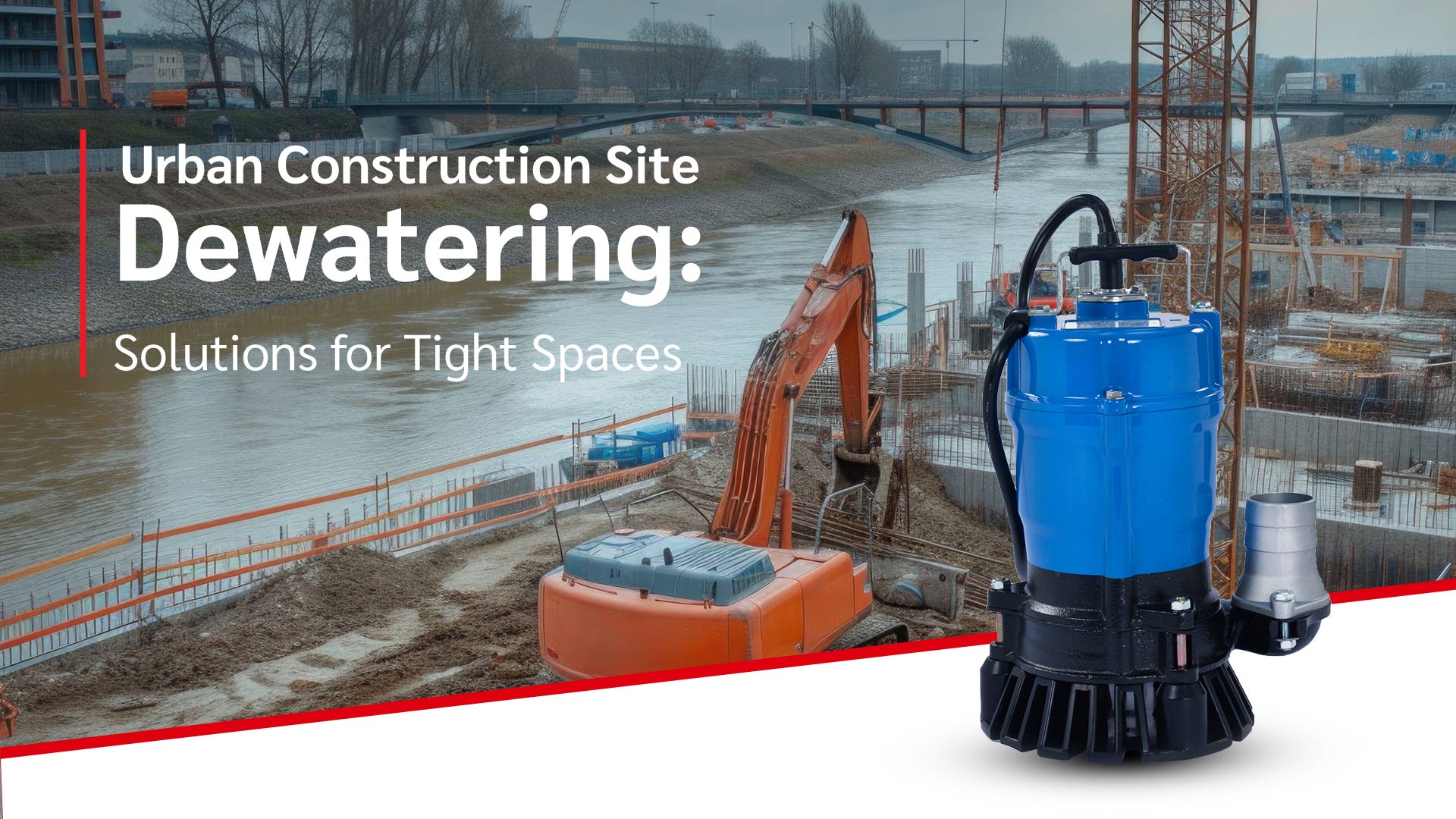
Urban Construction Dewatering: Solutions for Tight Spaces
03-10-2024
Urban Construction Dewatering: Solutions for Tight Spaces
In India’s rapidly growing urban centres, construction projects often face unique challenges, particularly in managing water in confined spaces. Dewatering, the process of removing water from construction sites, becomes crucial in such scenarios. Urban environments, with their limited space and complex underground infrastructure, demand innovative dewatering solutions that are both effective and adaptable.
The Challenges of Urban Dewatering
Urban construction sites are often surrounded by existing buildings, underground utilities, and narrow streets. Traditional dewatering methods, like open sump pumping, can be impractical due to space constraints and potential disruptions to nearby structures. Moreover, the high water table in many Indian cities further complicates matters, making efficient dewatering essential to maintain the structural integrity of new construction sites.
Innovative Dewatering Techniques
In response to these challenges, several innovative techniques have been developed. Wellpoint dewatering, for instance, involves the installation of a series of small-diameter wells connected to a central vacuum pump. This method is highly effective in tight spaces, as it allows precise control over groundwater levels without requiring large-scale excavation.
Another solution gaining traction in India is the use of deep well dewatering systems. These systems involve drilling deep wells and using submersible pumps to remove water from the ground. Deep well dewatering is particularly useful in areas with a high water table or where excavation is deep and confined.
Applications in India
A notable example of effective dewatering in an urban environment is the construction of the Mumbai Metro. The project faced significant groundwater challenges due to the city’s high water table and dense infrastructure. By employing a combination of wellpoint and deep well dewatering techniques, the construction team successfully managed water levels, ensuring the timely completion of underground stations and tunnels.
Another example comes from Delhi, where dewatering was critical during the construction of the Delhi Metro’s Phase III. The use of advanced dewatering pumps and wellpoint systems helped manage water levels in tight, congested areas, preventing delays and ensuring the safety of the construction process.
Aqua Group’s achievement:
Aqua Group, a leading manufacturer of submersible pumps in India, offers efficient and reliable pumpsets for various dewatering applications.
Their expertise in this field is evident in their successful resolution of water logging issues at a major IT park project in Chennai.
By providing 50 borewell submersible pumps, Aqua Group ensured continuous 24/7 water removal from the borewells located in the foundation area, effectively lowering the groundwater level and enabling smooth construction progress.
Conclusion
As urbanization continues to reshape India’s cities, the need for innovative dewatering solutions becomes increasingly important. Aqua Group, specializing in advanced dewatering pumps, is at the forefront of providing reliable solutions for construction projects in tight urban spaces. By leveraging cutting-edge technology and expertise, we ensurethat even the most challenging dewatering tasks are handled with precision and efficiency.
